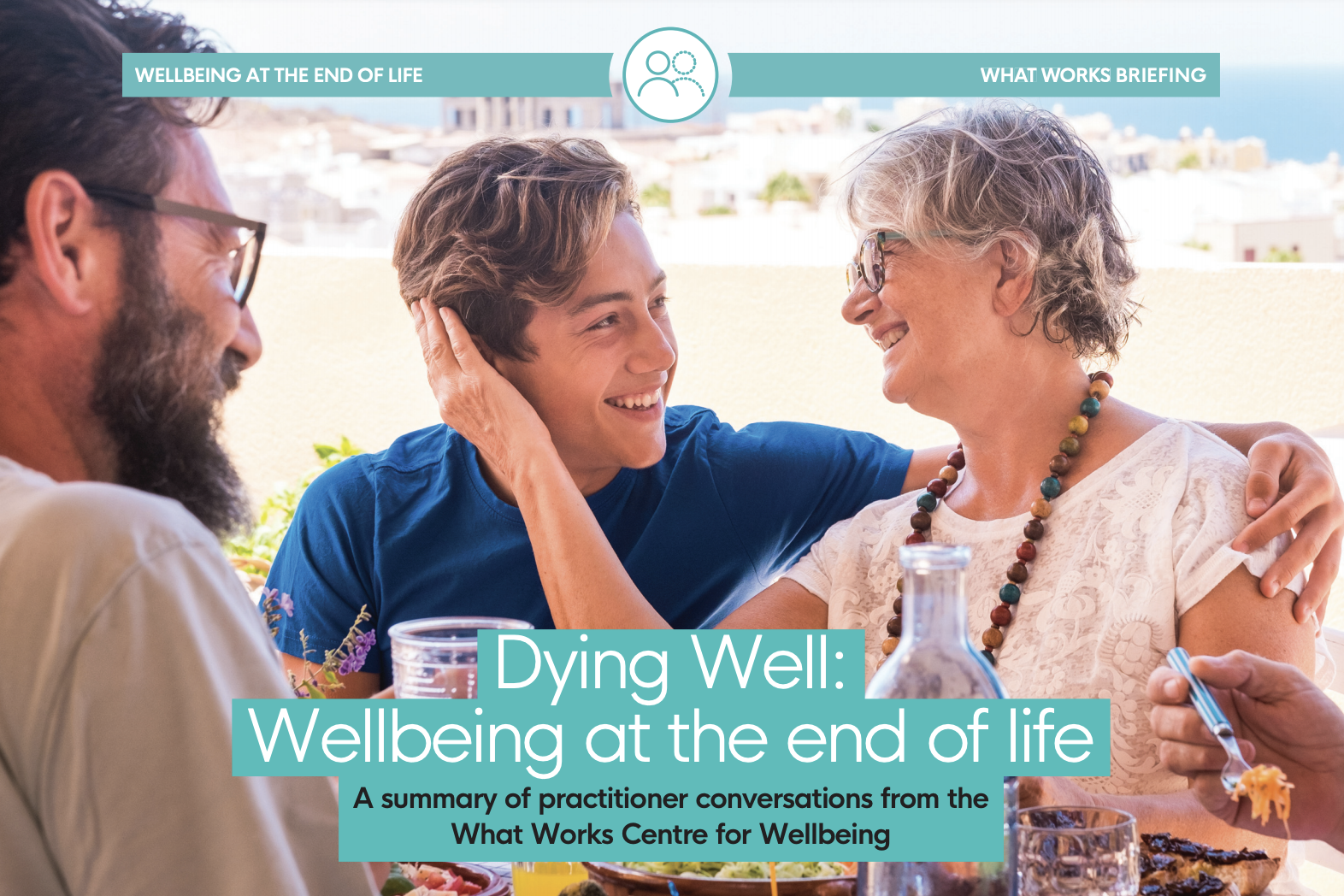The following six areas of research interest were identified to more fully understand what matters to people with terminal illness and how society can maximise their wellbeing for as long as possible.
Conceptual review
The evidence on dying well, palliative and end of life care, is scattered and tends to be focused on single population groups. There is a lack of clarity about definitions of dying well, wellbeing and related concepts of quality in care towards the end of life; and how it should be evaluated, measured and applied in policy and practice.
What does wellbeing at the end of life look like? What matters? For individuals? Family? Close partners?
What are the drivers of personal subjective wellbeing at the end of life? What drives differences in these?
What are the unique factors of context at the end of life?
Understanding wellbeing needs at the end of life: what would a wellbeing assessment look like at the end of life?
Measures
What are the best measures of wellbeing at the end of life?
What are the best measures for different groups for example individual, family, close relations, non-normative family structures, friends, community?
What are the best ways of collecting this data?
Can we identify standard measures and idiosyncratic measures that can be tailored to reflect an individual’s needs and preferences?
What would context specific measures look like, for example assessing the effectiveness of interventions that support someone with a terminal illness to continue in the workplace?
How could measures reflect equity, inequality and different experiences?
Cohort identification
What are the best ways to identify the cohort of people who are approaching the end of their life? Is this easier/more possible with some conditions rather than others?
How can we improve prognostication for health professionals and individuals?
Care
What are the best ways to embed wellbeing as a goal of end of life care?
What does good end of life care that maximises wellbeing, physical and mental health look like?
How does the implementation of standards for end of life care affect wellbeing?
How is wellbeing affected by palliative care interventions? What works to improve wellbeing in palliative care?
Would a more holistic, less medicalised model of palliative care have greater wellbeing benefits? What would change, for who and in what context?
How do we bring symptom management to the fore in treatment plans, and raise people’s expectations of working for wellness; not just minimising sickness?
What role does good record keeping/decision making/processes play in maximising wellbeing at the end of life i.e. doing the basics well? Can lessons be drawn from behavioural insight?
What works to maintain social connections and relations at the end of life?
What are the best ways a community can support someone to die? What are the networks that come into play?
How do we reshape public dialogue of what palliative care is? How can we build awareness that palliative care can be wellbeing enhancing and shift perceptions from end of life to symptom management and wellbeing?
Wider wellbeing impacts of death, grief and loss
If your life experience is different to that of your peers, for example, you are widowed at a young age, are there different wellbeing impacts?
What is the impact on wellbeing of the experience of loss: understanding acute dips in wellbeing. And what works to start to shift the dial?
Advance Care Planning
What’s the impact on wellbeing when Advance Care Planning and End of Life Care are decoupled?
What’s the impact on wellbeing when advance care plans are followed, and when they aren’t followed. What’s the impact of doing what matters/bespoke-by-default?

![]()

